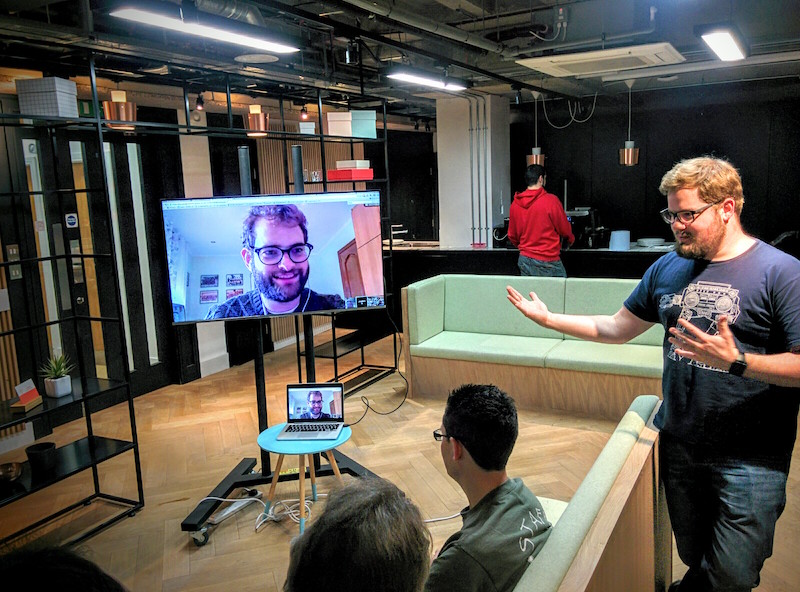
As we mentioned in the first part of this article, FOODit employees work from home whenever they need to and it has been serving us really well so far. However, let’s not forget about the elusive faces behind the screens, entrenched in mystery and never seen by anyone in real life: our permanent remote workers. While the same policy rules apply to both permanently remote employees as well as FOODies who work from home occasionally, there is one thing that makes the matter a bit trickier with the former: culture.
You won’t forget all about company culture in one or two days away from the office, but what about the employees who are away all the time? How do you establish the cultural values of the company? How do you maintain them? Is the limited, technology-aided communication enough to maintain a healthy working relationship and make sure that the employees do not feel like Tom Hanks in Cast Away? We decided to go straight to the source and talked to our permanently remote-working FOODies.
Semyon
First off, there is Semyon. Based in St. Petersburg, Russia, he has worked at FOODit since January 2015. Our relationship, however, began much earlier, namely in October 2013, through 3wks - a digital solutions agency where Semyon was working at the time and where he contributed to building FOODit’s MVP. He subsequently joined the company on a contractual basis and is with us until present day. Naturally, working with the company from the very start equipped Semyon with a deep understanding of FOODit and the very foundations of its vision. Having daily standups with the (then) tiny team which continue on until this day made it possible for Semyon to be a part of the company’s culture during its first stages of the development.
As Semyon puts it himself, culture is a crucial part of a company. “Well organized company culture creates comfortable conditions for work that makes people happy with their jobs. It also helps to convey main company goals to employees. FOODit’s culture is mostly based around unified and transparent goals: everybody does different things, but we all have the same goals.” - he says. How are we currently achieving that?
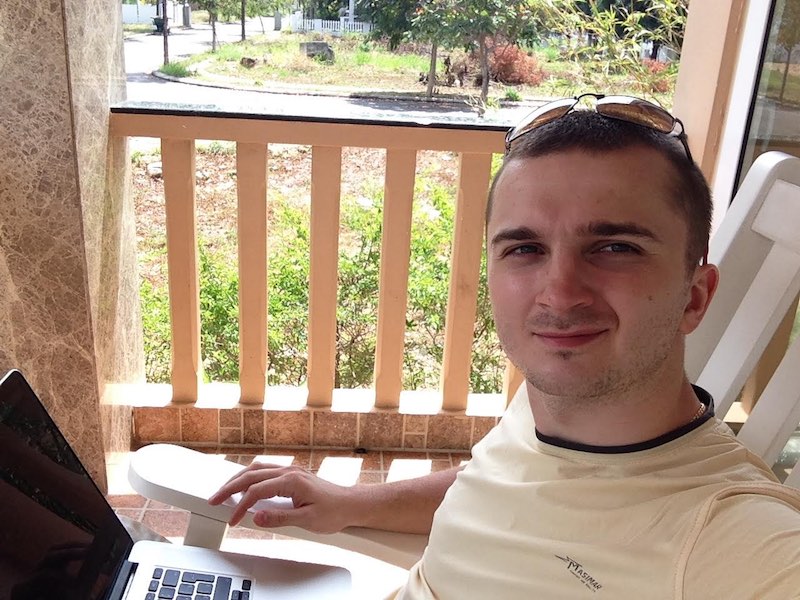
Well, we haven’t invented a miraculous solution yet. However, the daily dev standups which began at 3wks are a big help. Thanks to them, Semyon understands the development process which improves the results of his work. There is also our monthly all-hands meeting which gives him a better understanding of the company goals, plans, products and strategies. According to Semyon, it always gives him a great boost of motivation to understand well what he is doing. “Before the all-hands meeting appeared at FOODit I didn't know about any plans or strategies of the company. Usually I found out about the new things accidentally, from time to time. And I always had to ask stupid questions”- he says. The lack of communication with your teammates frequently means that you are the last one to find out about updates which often leads to procrastination. The best solution to this is to start discussing unclear topics with your colleagues and get somebody to fill in the gaps for you.
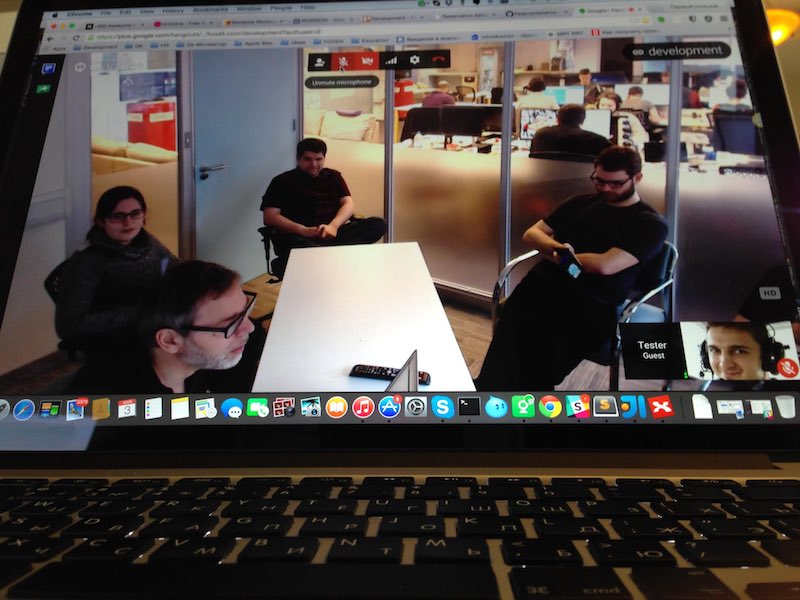
There are also smaller things like the FOODit Slack channel, Google Hangouts and the book club to aid the communication. Thanks to them, Semyon has a lot more contact with other FOODies which makes him feel like he is a part of something larger and, hence, less lonely. Of course, the communication is incomparable to the one in the office, but “for a remote worker”, as Semyon puts it, it is a big deal.
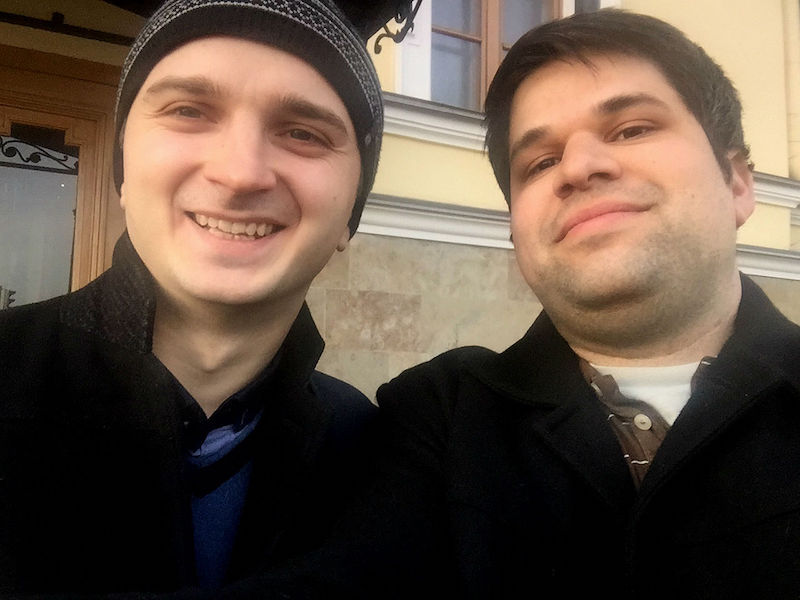
How does he plan to stay on top of FOODit culture from his side? By eating lots of delicious food, first and foremost! A little trip from St. Petersburg to London is also in his plans for the near future. “It would be great to meet the people you're working with in real life” - he says.
Joachim
Next up, there is our Senior Java Developer - Joachim. He started working at FOODit over a year and a half ago and permanently moved to Barcelona, Spain, just a few months ago. Joachim’s position is different to Semyon’s in terms of familiarity with company culture and values which he took an active part in from the very start while he was working from the office. How did his relationship to them change since his move?
Well, apart from the increased number of paella and churro pictures, apparently, not much. Joachim is in constant communication with the rest of the FOODies through Slack, daily standups and code reviews - cracking jokes, posting food pictures and sharing stories. Even while working remotely, Joachim manages to remain an active part even of the informal FOODie life.
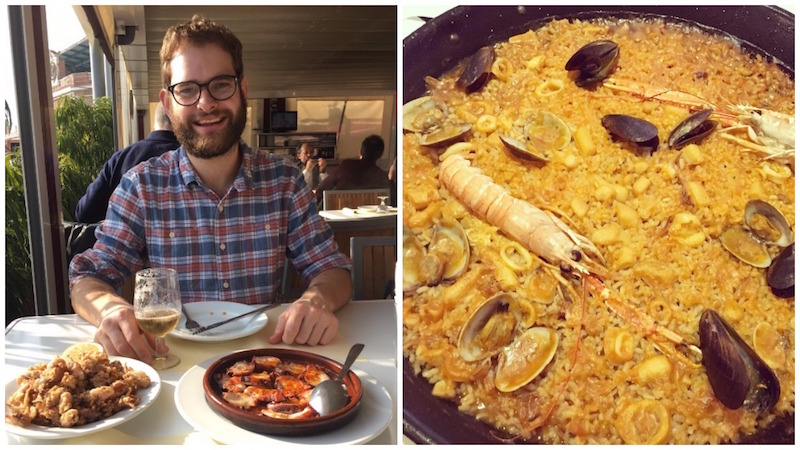
This gives him a great dose of motivation on a daily basis: “Being able to report progress each day, and throughout the day helps keep focus.” - he says. This is why every morning the developers have a standup, as well as daily team code reviews. If there is something particularly interesting to discuss, they don't hesitate to start a video conference there and then.

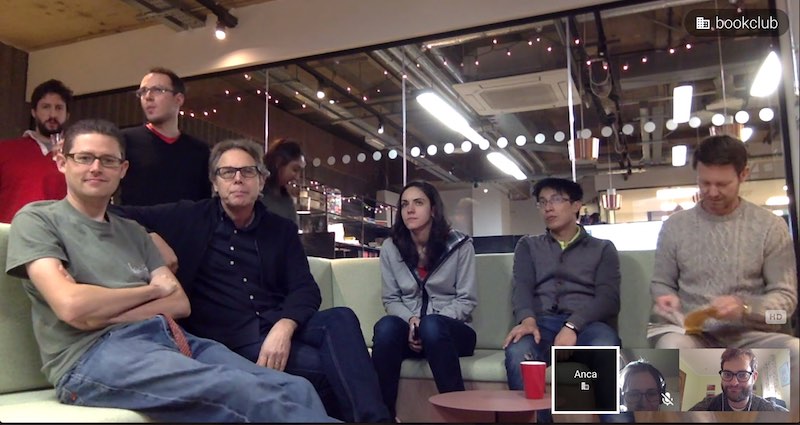
On the downside, Joachim does admit that when working remotely, you do miss out on the cross-room chats and background conversations which can give you more information about why we are doing certain things, rather than just what we are doing as a company. Therefore, the sharing of techniques and ideas needs to be more structured across a distributed team than just shouting something out across the room. “To resolve this, you need to be active and open for communication: react to others’ requests, ask more questions” - Joachim advises.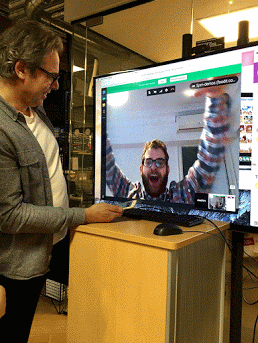 The divide between work life and home life can get a little blurred too. It manifests itself through working more than is necessary, checking messages more often and thinking about work even in your downtime. All of this might make the work-life balance a little distorted and unhealthy and that’s why Joachim emphasizes the importance of having a routine. “It can be easy to continue with something as you are already home, and you want to complete the day’s tasks, and this is generally a good thing as long as it doesn't interrupt your work/life balance.” - claims Joachim
The divide between work life and home life can get a little blurred too. It manifests itself through working more than is necessary, checking messages more often and thinking about work even in your downtime. All of this might make the work-life balance a little distorted and unhealthy and that’s why Joachim emphasizes the importance of having a routine. “It can be easy to continue with something as you are already home, and you want to complete the day’s tasks, and this is generally a good thing as long as it doesn't interrupt your work/life balance.” - claims Joachim
Fareena
Apart from the remote working developers we also have a remote customer success advisor - Fareena, based in Heathrow. She joined us around two months ago and usually works late hours. Communicating mostly with our Restaurant Success Team through a plethora of tools (Trello, Skype, FreshDesk, Slack, for example), she looks after the restaurant orders, table bookings and reports any problems that the restaurant owners may have which makes her as important to the company as any other RST member.
Similarly to Semyon’s story in the beginning, Fareena is currently not a part of our daily standups and meetings yet as she has joined us very recently, but we are slowly working towards including her more actively in the daily office life. We want Fareena to be a part of our monthly all-hands meetings, book clubs, Christmas parties, annual BBQs and other social get-togethers so she would get to know the whole team on a personal level and get a better feel for what the company is all about.
For Fareena, the biggest issue with remote working is the occasional feeling of loneliness. She says: “I can feel isolated sometimes, because I don’t get to meet new people like I would if I was working from the office”. Fortunately, she does not feel like the isolation affects her work, as her colleagues are always just a phone call away in case she needs help.
Future Plans
In addition to Fareena, Joachim and Semyon, we also have other FOODies based in The Philippines, USA and Pakistan. We are constantly working on coming up with new ways of integrating our remote workers into everyday team life and FOODit culture. As we mentioned before, it is still an ongoing process and we have not come even close to perfecting it. However, we are doing our best to think outside the box and find ways of making our remote workers a fully-functional part of the FOODit tribe, without indulging in futuristic, The Jetsons - like concepts.
For example, we are planning to start working on “A Day in The Life of” - type articles about individual FOODies for better mutual understanding of each other’s roles and their significance within the company as a whole. Enabling people to connect a face to a name and know a bit more about the person will help them see their colleagues as integral parts of the team. We also always encourage our remote workers to come and participate in company events, e.g. flying over to join us at tech job fairs such as Silicon Milkroundabout, BBQs or Christmas parties.
Offering the remote working option is a fantastic way of expanding horizons as a company, garnering new talent without the constraints of long distance as well as infusing the company culture with mutual trust. Maintaining strong culture is an essential element of our remote working policy. It strengthens the bonds between the employees and, as we mentioned before, motivates the remote workers to do great work without falling into a routine, getting lonely or losing perspective. Make sure you keep them in the loop, engaged and feeling like they are a real part of the team, no matter how far away they are.